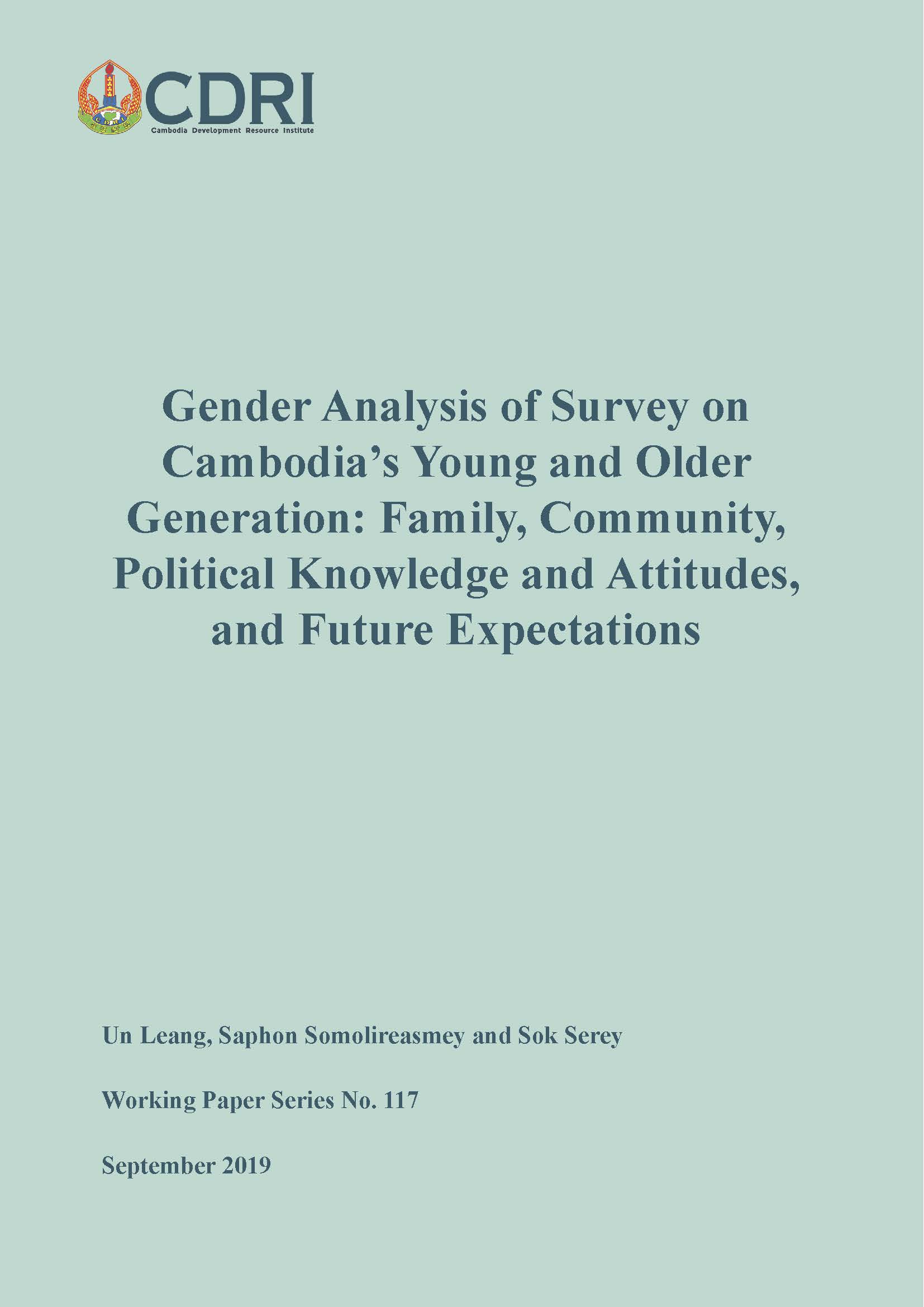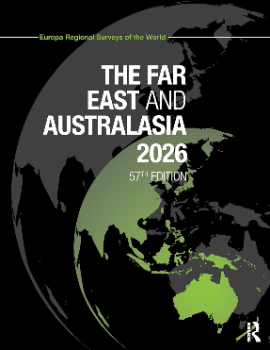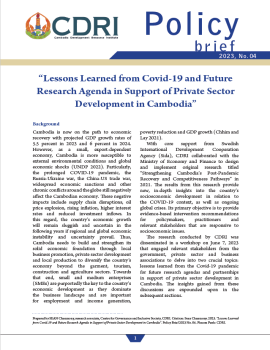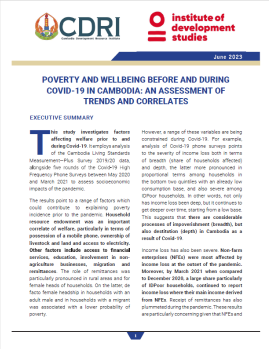
Gender Analysis of Survey on Cambodia’s Young and Older Generation: Family, Community, Political Knowledge and Attitudes, and Future Expectations
Keyword: Gender analysis, political knowledge, young and older generation, family, community
Abstract/Summary
This study presents a gendered analysis of a nationally representative survey of 1,600 Cambodians aged 16–65, conducted across rural and urban areas. It explores how women’s perceptions and participation in socio-political life vary by age, education, residence, employment, mobility, and internet use. The analysis focuses on four themes: family, community attitudes, political knowledge and attitudes, and future expectations. Findings reveal that younger, educated, urban, and internet-using women are more likely to challenge traditional norms, assert autonomy in life decisions, and support gender equality. However, traditional views persist, particularly among older, rural, and less-educated women, who often perceive gender as a barrier to success and endorse male leadership. Trust in institutions like schools and hospitals is high, but scepticism toward development workers is notable. While many women express care for their country, this sentiment does not consistently translate into civic engagement. The study underscores the importance of disaggregating gender data to inform targeted policies. It concludes that treating women as a homogeneous group risks overlooking critical differences in experience and perspective, and calls for nuanced approaches to promoting gender equity and empowerment in Cambodia’s evolving socio-political landscape.
DOI: https://doi.org/10.64202/wp.117.201909



